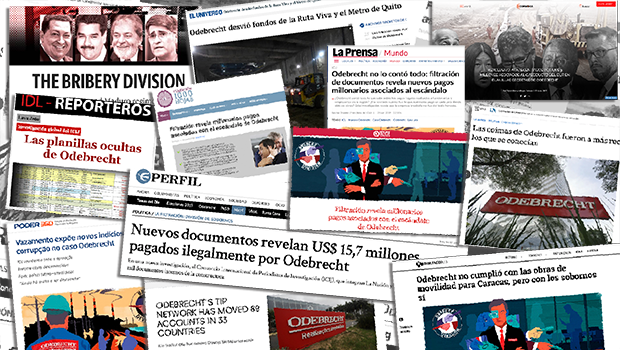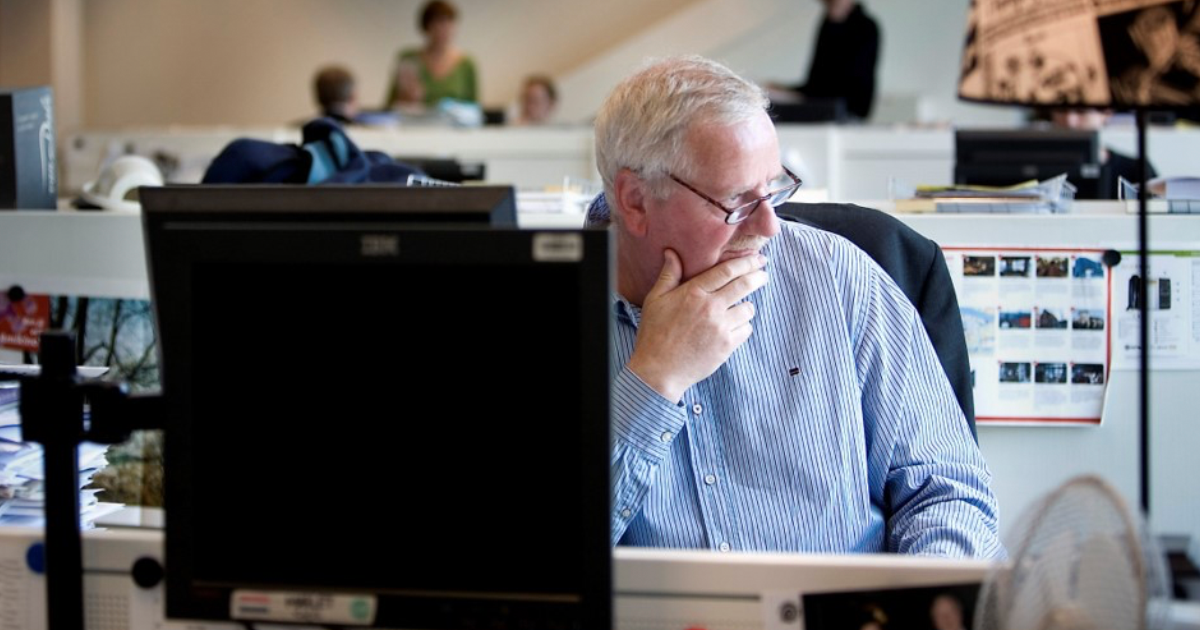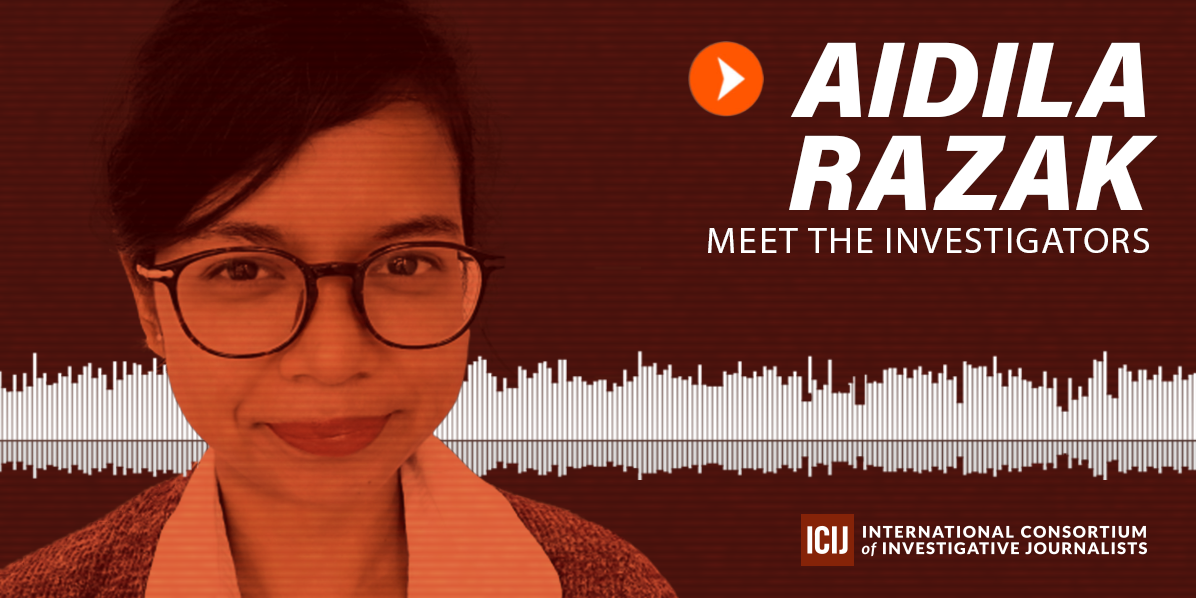MEET THE INVESTIGATORS
‘Ethics above all’: Mary Triny Zea on reporting in Panama that sparked change
Zea talks about her dogged journalism that resulted in protests and investigations in this month’s ‘Meet the Investigators’ podcast.
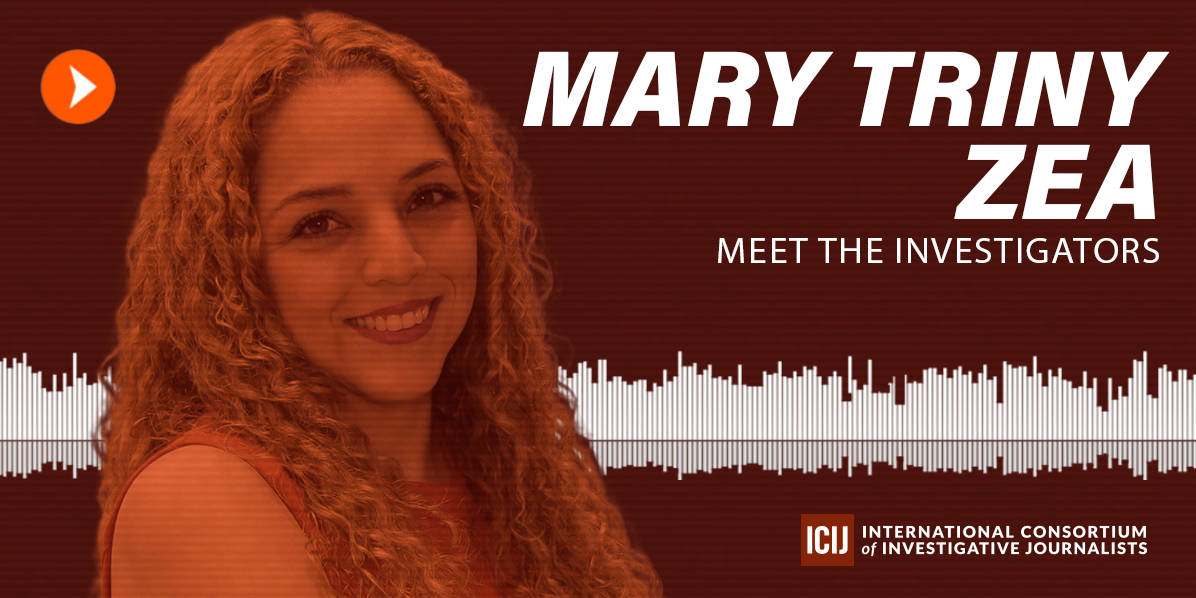
The International Consortium of Investigative Journalists collaborates with hundreds of members across the world. Each of these journalists is among the best in his or her country and many have won national and global awards. Our monthly series, Meet the Investigators, highlights the work of these tireless journalists.
This month, we speak with Mary Triny Zea, from Panama, about investigative reporting in one of Latin America’s ‘luckiest’ countries.
Mary decided to become a reporter in order to be an “agent of change” and, as you’ll hear, she did just that with one of her investigations. After banging on doors and sifting through documents, her work sparked a public outcry, enraged citizens and helped change her country’s path.
She’s also got plenty of great reading tips for those looking for something new to devour (in Spanish and English)!
Scilla Alecci: Hi, I’m Scilla Alecci with the International Consortium of Investigative Journalists and this is our podcast, Meet the Investigators. This month we talked to a journalist from Panama.
Mary Triny Zea: My name is Mary Triny Zea and I work for La Prensa newspaper.
Scilla: Mary Triny spoke with ICIJ reporter Kyra Gurney.
Kyra Gurney: Tell me a little bit about yourself, what made you decide to become a journalist?
Mary Triny: I’m a person of uncompromised principles and values, and I decide to become a journalist as a means to transform reality and be an agent of change within a society full of injustice, such as Panama Republics.
Scilla: With its booming economy, Panama is one of Latin America’s “luckiest” countries, according to a report by The Economist. And its citizens are some of the richest in the region. But it is also one of the most unequal and prone to corruption. In 2016, our investigation, the Panama Papers, revealed how some Panamanian firms helped people across the world launder money and dodge taxes. Meanwhile, Panama’s children are stuck with what’s labeled one of the worst education systems in the world.
Mary Triny: Panama is the richest country in Latin America. Yet, it makes me angry and hurt to see poor children lacking adequate state schools, cultural and sports centers. It also hurts to see kids going to school with the hope of getting something to eat there because there is nothing at home. So, when you analyze things, you realize there is no shortage of money at all. There is plenty of money in this nation but corruption, mismanagement of government funds and monkey business generate this unfortunate and sad outcome.
Scilla: As a passionate investigative journalist, Mary Triny couldn’t ignore such rampant corruption and lack of fair opportunities.
Kyra: What investigation or story are you most proud of?
Mary Triny: The investigation I’m most proud of is one regarding dubious philanthropy in our legislative assembly and one related to sports, in which our athletes do not get any funds or support.
I discovered that donations from these legislators were offered through their assistants, and they even had a secret code to cover the identities of the legislators who managed all the payments. So, they offered checks to the needy people but the beneficiaries actually received 5% of payment. The rest returned to the legislators.
So, I discovered that the legislators’ assistants really accompanied beneficiaries to the bank and took the money giving them only 5%. These donations were made to poor people who, as I said, did not receive the full payment, just a small part of it, and on the other hand, legislator assistants were outside of the bank to get 95% of the check back.
In most cases, people never knew what legislator was involved.
Later on, in the sports investigation, we revealed that there were sports organizations also led by legislators, that were the only ones to receive millionaire funds, from the Executive Branch for Sports equipment and for impoverished communities.
And once again, funds never reached the beneficiaries. We are talking about more than $100 million dollars including both investigations.
Kyra: These are really incredible findings. Can you tell us more about how you reported these stories?
Mary Triny: First of all, we started with extraction of data from payments reported to the Comptroller of the Republic, which is public information.
We looked at donations and payments. I organized data in Excel Sheets and crossed information with other databases that have ID numbers, and addresses. Then, I generate Excel tables to summarize all information.
From there, I started working very hard, walking the streets a lot, looking for the supposed favorite ones or beneficiaries, tracking the monies, knocking on doors of houses, knocking NGO’s doors, visiting the poor favorite communities that were given millions of dollars in sports equipment to see if the described payment in the papers were true or not.
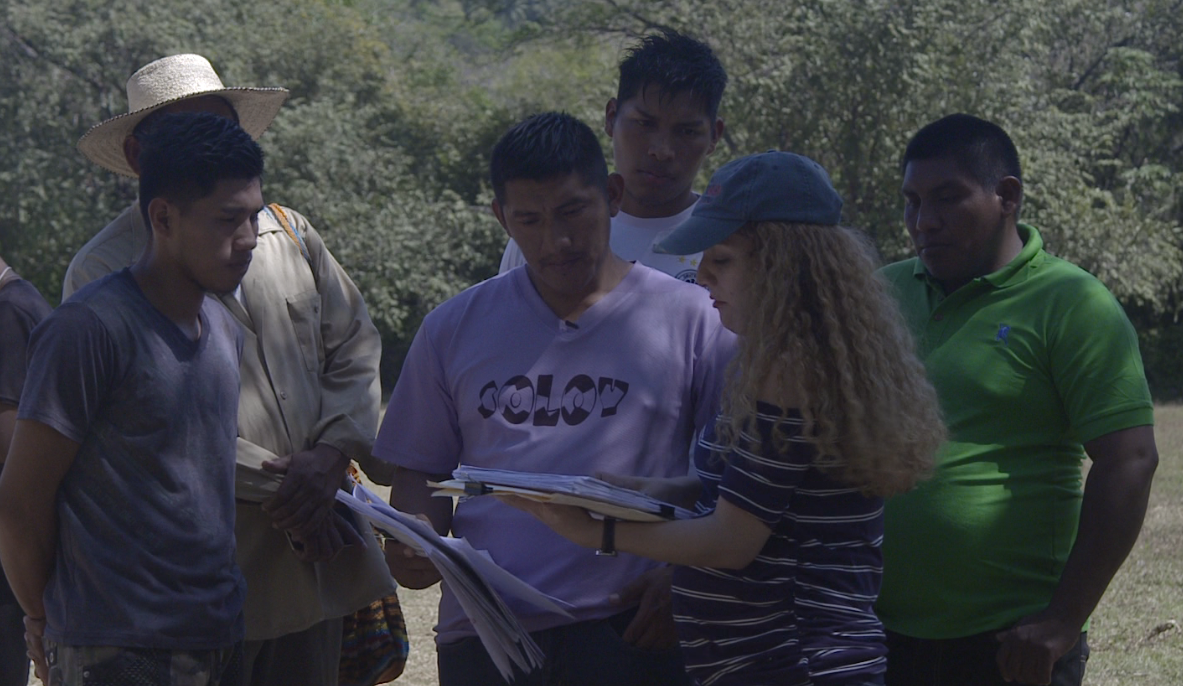
When I arrived at the poor communities, there was no sports equipment and not even a sports facility. People did not know that they had received such amounts of money, implements, or any donation.
So, I remember many people cried with rage when reading documents and funds that were supposedly given to them, and that ended up in the hands of politicians. And we are talking about legislators of all political parties in Panama.
Kyra: Wow! And what was the hardest part of this reporting?
Mary Triny: I think the hardest part was the absolute lack of response from politicians to whom we asked for details of money use.
And we found the same attitude was received by the entity that delivered payments in the sports case.
So, I had to appeal to the Supreme Court of Justice to request via habeas [corpus] data to have the entity deliver all the documentation related to use of public funds. So they finally did it but partially, and it took me more than a year to receive it.
Meanwhile, the task of seeking interviews in distant regions of the country went on.
Kyra: What was the impact of these investigations?
Mary Triny: It resulted in a great scandal that outraged the public. Protests and anti-election campaigns for legislators arose.
All these have an impact in the last polls. And in addition to that, the journalistic investigations were used to start prosecution of cases and investigations are still going on by the authorities.
Scilla: Mary Triny’s investigations on donations and sports subsidies ending up in politicians’ pockets were recognized with a number of awards.
They also helped fuel a grassroots anti-corruption movement that went viral on social media, with the hashtag #NoALaReelección (No to re-election).
Kyra: That’s incredible. It’s so amazing that your reporting resulted in this public campaign in which people were protesting the re-election for the legislators who were involved.
How did it feel for you to know that your journalism had inspired this civic movement?
Mary Triny: I feel the objective of journalism as a public service to the community is reaffirmed. The message arrived, the public took action regarding publication.
They were outraged. They organized and decided to demand accountability and later on, they passed the bill to the politicians at the polls.
I get the feeling that journalism pays off. I mean, it made us contribute to open people’s eyes. And that this has to be stopped.
Kyra: So like most of the world, Panama is also suffering right now because of the pandemic. What challenges has a pandemic created for investigative journalists in Panama?
Mary Triny: Of course. In Panama, we have the pandemic, as in all countries in the world, and it has complicated everything a lot.
We have less accountability than we had before on the use of public funds. This pandemic has become the perfect excuse to deny information on millionaire contracts. Now we have a total opacity of accountability. It’s more difficult to do journalism. In fact, authorities refused to give interviews, or to provide any information.
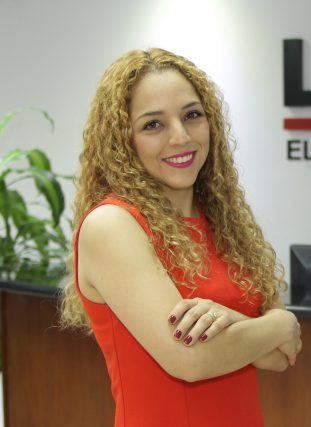
Scilla: For Mary Triny’s newspaper, the pandemic is not the only obstacle to press freedom. A legal action launched by a former president years ago is putting La Prensa’s finances in danger.
In 2012, Ernesto Pérez Balladares, who was president from 1994 to 1999, filed a defamation suit alleging that some of their articles had discredited his image.
According to the Committee to Protect Journalists, an advocacy group, the 2011 articles said that the former president could face a new criminal investigation for alleged money laundering.
Kyra: In July, a Panamanian Court ordered a freeze on the assets of the company that owns La Prensa. How has this court decision impacted your newspaper?
Mary Triny: Although the former president’s lawsuit was presented eight years ago, this process stopped all that time, and has only now restarted, so it’s just beginning. So that’s why it’s totally unacceptable and obvious that intentions were to cause damage to the newspaper with a case that could easily last several years.
And sequestration was presented about two months ago, putting in danger La Prensa’s normal operation. And it almost prevented salaries payment in the middle of the pandemic quarantine imposed by the health authorities.
So, the allegations of the former president only look to cause harm to La Prensa normal operations through sequestration but, fortunately, a bond was presented to avoid sequestration.
José María Castillo, Pérez Balladares: “Mi cliente no está por el dinero pero también quiere que se rectifique su honra…”
Scilla: That’s Pérez Balladares’ lawyer speaking at a recent meeting with La Prensa’s journalists. In the clip published on the newspaper’s YouTube channel, he told the reporters that the former president is not after their money but wants his honor restored.
The case is ongoing.
In the meantime, Mary Triny and her team continue to work hard to expose corruption.
Last year, she was part of the Panamanian reporting team who collaborated with ICIJ and media partners on our investigation Bribery Division.
They examined thousands of documents revealing hundreds of millions of dollars in suspicious payments linked to Odebrecht, Latin America’s largest construction company, and major infrastructure projects across the region.
Kyra: What’s the benefit of working on global collaborations?
Mary Triny: The experience was amazing. Colleagues support each other, a lot, in sharing common points of view between countries, methods, sources. There were companies that had connections and the same role in different countries.
The publication revealed, in Panama, the second largest beneficiary of the payments from Odebrecht’s blackbox in Panama and new nicknames and companies related to Odebrecht bribes.
So working as a team is fantastic. You feel a big support. There are different strengths in the team. So we all support each other. If we were in search of something that had to do with another country, for example, you pass information to your colleague. And we joined forces, data and searched for information across borders.
So the story comes out much more robust and verified.
Scilla: As we heard about Mary Triny’s experience we couldn’t not ask her one of our favorite questions …
Kyra: What tips or advice do you have for aspiring journalists?
Mary Triny: Well, I would tell aspiring journalists that this profession demands a lot of work. That research takes a lot of extra time, family time, personal leisure time, and that you have to have a cold mind, a lot of patience and methodology.
But, above all things, I think ethics, ethics. On the contrary to what has been said, the end does not justify the means. We have to have this concept clearly in our mind as journalists.
Kyra: And investigative journalism is a really stressful career. How do you manage or relieve the stress?
Mary Triny: Yeah, it’s very stressful. Well, I go biking, skating. I like to read about journalism or books by journalists and good writers.
Kyra: Can you tell us a piece of journalism or storytelling that you’ve really enjoyed lately?
Mary Triny: There are two books written by journalists that I have enjoyed a lot recently. For example, “The Voyeur’s Motel” by journalist Gae Talese. And “I’m talking to you from prison: Where you smell and breathe death” [original title: “Te hablo desde la prisión: Donde se huele y respira la muerte”] by the Col0mbian journalist Jineth Bedoya.
Also, in the middle of this pandemic and what it has implied, even more the transformation of the media, I have felt nostalgic and have read again for the second time the book titled “How to Write a Newspaper” (original title: “Cómo se escribe un periódico: El chip colonial y los diarios en América Latina”), by the teacher Miguel Ángel Bastenier.
That was just to refresh my knowledge and foundation of good journalism, because I think, journalism principle does not change only media or platforms change.
And currently, I have this book called “A Simple Story” (original title: “Una historia sencilla”) by Leila Guerriero, for my sleepless nights.
Kyra: Thank you so much for making the time.
Scilla: As Mary Triny said, investigative reporting is a really stressful job and we are very grateful to the journalists who take a moment from their busy schedule to talk to us.
Especially those whose English is not their first language. Thank you!
We hope you enjoyed this episode.
It was produced by Kyra Gurney, Amy Wilson-Chapman, and me, Scilla Alecci.
As always, please send us your feedback at social@icij.org, and don’t forget to tell your friends. If you can, please share the episode on social media and use the hashtag #MeetTheInvestigators to let people know.
Ciao!
